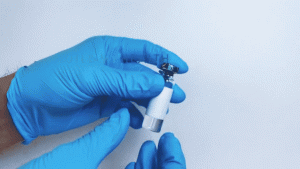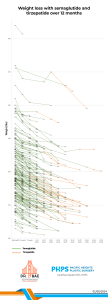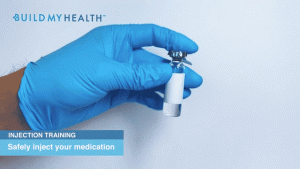
The latest from the FDA in regards to ALCL
According to the FDA, “Anaplastic large cell lymphome (ALCL) is a rare type of non-Hodgkin lymphoma (NHL), a cancer involving the cells of the immune system. According to the Surveillance, Epidemiology, and End Results (SEER) Program of the National Cancer Institute, approximately 1 in 500,000 women is diagnosed with ALCL in the United States each year. ALCL in the breast is even more rare; approximately 3 in 100 million women per year in the United States are diagnosed with ALCL in the breast (Altekruse et al., 2010).” However, according to Australia’s version of the FDA, ALCL can occur in 1 in 1,000 to 1 in 10,000 women with breast implants.
The lymphoma or overgrowth of abnormal lymph node-type cells can show up in the scar tissue or capsule that surround a breast implant. The scar tissue or capsule that form around an implant ALWAYS occurs after breast implant surgery. This is a normal response by the body to a foreign material like a breast implant or even knee replacement hardware. It is when this scar tissue has an abnormal growth of lymphoid tissue that is considered abnormal. As mentioned above, this type of lymphoma only occurs 3 times in the breast per 100 million women per year among all women, with and without implants. But based on very limited numbers, the FDA feels there is an increase in risk with women with breast implants.
As of February 1, 2017, there have been 359 medical device reports reported to the FDA Manufacturer and User Facility Device Experience (MAUDE) database. Of those, the FDA reports that 232 included information on the breast implant device. 203 identified as textured, 28 smooth and one identified as “another surface.” Both silicone and saline implants are among the cases of ALCL. While data reported to the FDA suggest some implants were smooth, according to two major plastic surgery societies, there are no confirmed smooth-only surface implants implicated.
How do you know if you have ALCL?
In patients that are diagnosed with ALCL after receiving breast implants, it is usually due to finding a seroma or fluid collection around the implants well after the procedure itself – anywhere from one to 23 years! The location of the fluid collection is demonstrated in the figure below.
What type of implants are associated with ALCL?
Textured seems to be associated with ALCL, more so than smooth. This may also have to do with the process of texturing. Manufacturers using the salt-loss technique seem more associated with ALCL. Texturing is used in all shaped implants to better keep the implant from turning in place, resulting in a “sideways boob.” If you have round implants, spinning doesn’t affect the appearance of the breast so texturing is less important. Thus, most round implants are smooth – a surface type with no confirmed link to ALCL in the US.
How do you treat ALCL surrounding breast implants?
Based on past cases, the scar tissue around the implant is removed and the patient is cured. In rare cases, chemotherapy is necessary.
What should you do if you have implants?
So while there is a suggestion that textured implants are associated with ALCL, there’s no direct cause and effect relationship. As with any surgical procedure, there is always a modicum of uncertainty, which is both normal and unfortunately, unavoidable.
Most importantly, if you are not experiencing any problems with your implants – no late forming seroma or mass – the FDA does not recommend removing your implants. In other words, there’s no reason for a mass explantation of breast implants. Continue to be vigilant regarding breast health with self-exams and if you’re in a certain demographic, mammograms. Good advice for all women with or without implants.
To meet with Dr. Kaplan, a board certified plastic surgeon, to discuss further, click here.
Click here for the original blog post written by Dr. Jonathan Kaplan for BuildMyBod.






